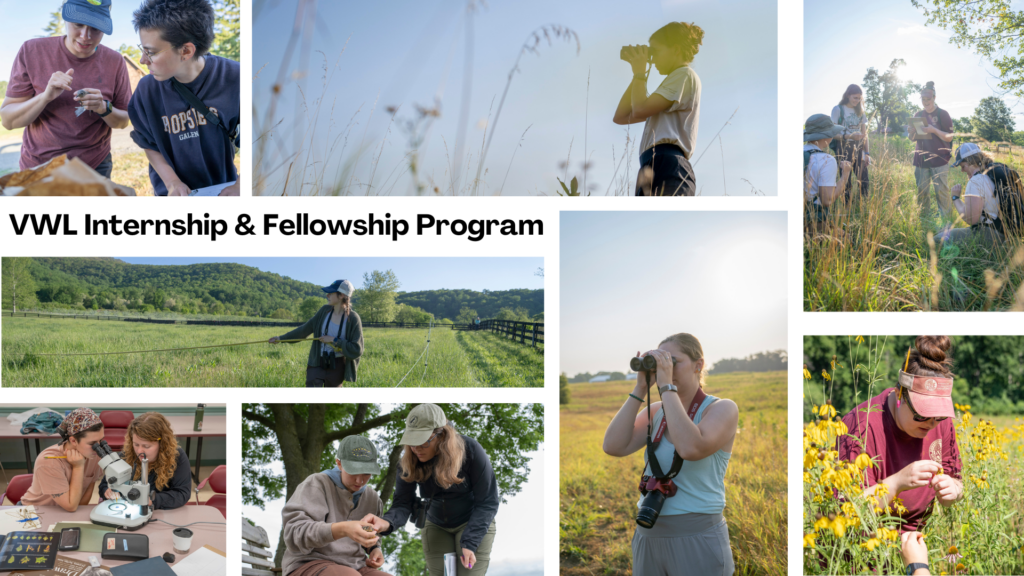Jobs & Internships

We are not currently accepting applications. Please sign up for our newsletter to stay up to date on all opportunities with VWL!
Virginia Working Landscapes (VWL) is a program of Smithsonian’s National Zoo & Conservation Biology Institute (NZCBI) that promotes the conservation of native biodiversity and sustainable land use through research, education, and community engagement. Interns will have a unique opportunity to develop skills in wildlife biodiversity research, native species conservation, and sustainable land use practices on Virginia’s working landscapes, while connecting with professionals in the Smithsonian’s network.
Benefits of interning with VWL:
- Participation in current research on grassland biodiversity in Virginia.
- Participation in multiple projects that will reinforce their skills in biodiversity monitoring and conservation.
- Connections with partnering conservation organizations working in various areas of conservation.
- Exchange of ideas with researchers in different science areas at NZCBI.
- Participation in seminars, VWL workshops and events, and other educational activities at NZCBI.
At VWL, we value the strength that comes from a variety of perspectives and experiences, and we are committed to providing an inclusive and supportive space for our entire team. As such, we encourage individuals from all races, ethnicities, genders, sexual orientations, abilities, and socioeconomic backgrounds to apply for our internship opportunities.
SUPPORT VWL
VWL is supported 100% by grants and donations and our work is made possible by the generous contributions from our community.
The Smithsonian Institution is a 501(c)(3). All contributions are tax-deductible.
GET IN TOUCH
Virginia Working Landscapes
Smithsonian’s National Zoo and Conservation Biology Institute
1500 Remount Road, MRC 5537
Front Royal, Virginia 22630
SCBIVWL@si.edu
540-635-0035
